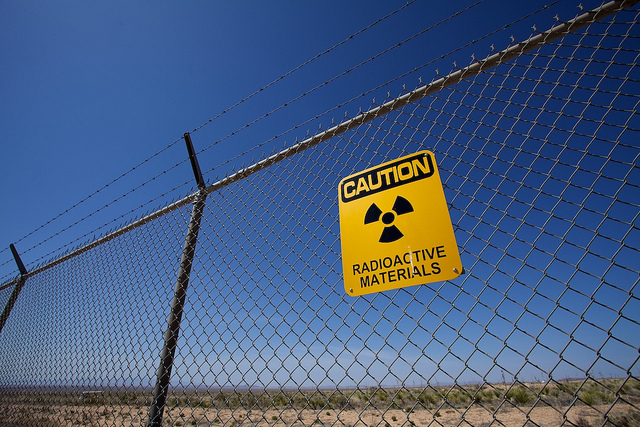
Tomorrow’s an important anniversary on the strategic calendar. The first US nuclear test—codenamed Trinity—occurred on 16 July 1945. The event represented both the culmination of the work of the Manhattan Project and the dawn of a new strategic era. In the subsequent weeks two nuclear weapons would be dropped on Japan, bringing to an end the most destructive conventional war in human history. Further, in the 71 years since, nuclear weapons have become an important foundation stone in the modern edifice of international security—and with all major nuclear weapons states currently committed to nuclear modernisation programs, the importance of nuclear weapons seems more likely to grow than to diminish in coming decades.
For readers interested in the Trinity test, we still think the best book on the topic is Richard Rhodes’s 1986 classic, The making of the atomic bomb. Rhodes does an excellent job of telling the story that led up to 16 July 1945, and of what came after. Robert Oppenheimer’s reaction to the test is the one that history’s remembered best:
‘We waited until the blast had passed, walked out of the shelter and then it was extremely solemn. We knew the world would not be the same. A few people laughed, a few people cried. Most people were silent. I remembered the line from the Hindu scripture, the Bhagavad-Gita: Vishnu is trying to persuade the Prince that he should do his duty and to impress him he takes on his multi-armed form and says, ‘Now I am become Death, the destroyer of worlds.’ I suppose we all felt like that, one way or another.’
Of course, for almost as long as there have been nuclear weapons there have been proposals to ban them, advanced by those who fervently believe that the weapons are simply too destructive to play a central or long-term role in global security. Today, that campaign is enjoying a new burst of vigour—indeed, there’s growing international support for a ban on the ultimate weapons of mass destruction. Moreover, the Trinity anniversary unfolds among media reports that President Obama’s considering major changes in US nuclear policy, including the declaration of a ‘no first use’ policy, the cutting of US modernisation plans, and pursuit of a UN Security Council Resolution banning nuclear tests as a means of bypassing a US Senate unwilling to ratify the CTBT.
But it’s important not to get swept up in the renewed dissatisfaction with the nuclear status quo. Instead, to mark this anniversary we should remember why nuclear weapons are important to maintaining international stability. Nuclear weapons have done much to prevent major war since their induction into the arsenals of the great powers. In effect, their invention threw into reverse a long-term historical trend towards the ‘massification’ of war, because the power of nuclear weapons is so great that contests to ‘out-mass’ the opponent quickly lose meaning. Moreover, nuclear arsenals make policy-makers more cautious, precisely because escalation ladders are uncertain, and the potential costs of miscalculation so high. So it’s not fatuous to argue that the Cold War stayed ‘cold’ in large part due to the existence of nuclear weapons. Moreover, the effects aren’t limited to great-power relationships. They can be seen in other nuclear dyads—like that between India and Pakistan.
Nuclear weapons are important to maintaining global stability and to the national security of a significant number of states. In the international community, only 9 countries—about 5%—currently have nuclear weapons. But if we add in the number of countries benefitting from nuclear assurance—almost 40 more—that percentage rises to about 25%. Moreover, that 25% includes the world’s strategy-makers. If we consider only smaller, more powerful and exclusive clubs, the percentage rises abruptly. Among the permanent five members of the UN Security Council, for example, 100% are nuclear weapon states. Power attracts power.
Nuclear weapons are undeniably destructive—and the central puzzle of nuclear strategy has always been to devise a way whereby such weapons can make a positive contribution to international security. On the anniversary of the Trinity test, we should remember that nuclear weapons have largely served as a force for stability and security for 70 years. Their sheer destructive power allows them to speak a unique dialect of the language of deterrence. Do they stop all war? No. The use of nuclear weapons can be credibly threatened only in relation to serious threats. But they do have leverage against the costliest forms of war—by threatening to burden such wars with completely unacceptable costs. Instead of lamenting their invention and attempting to delegitimise their existence and roles, we need to accept that nuclear weapons are, for now, a necessary evil. A mammoth management task still lies before us, but it’s not the task of pursuing the unrealistic goal of global zero.

